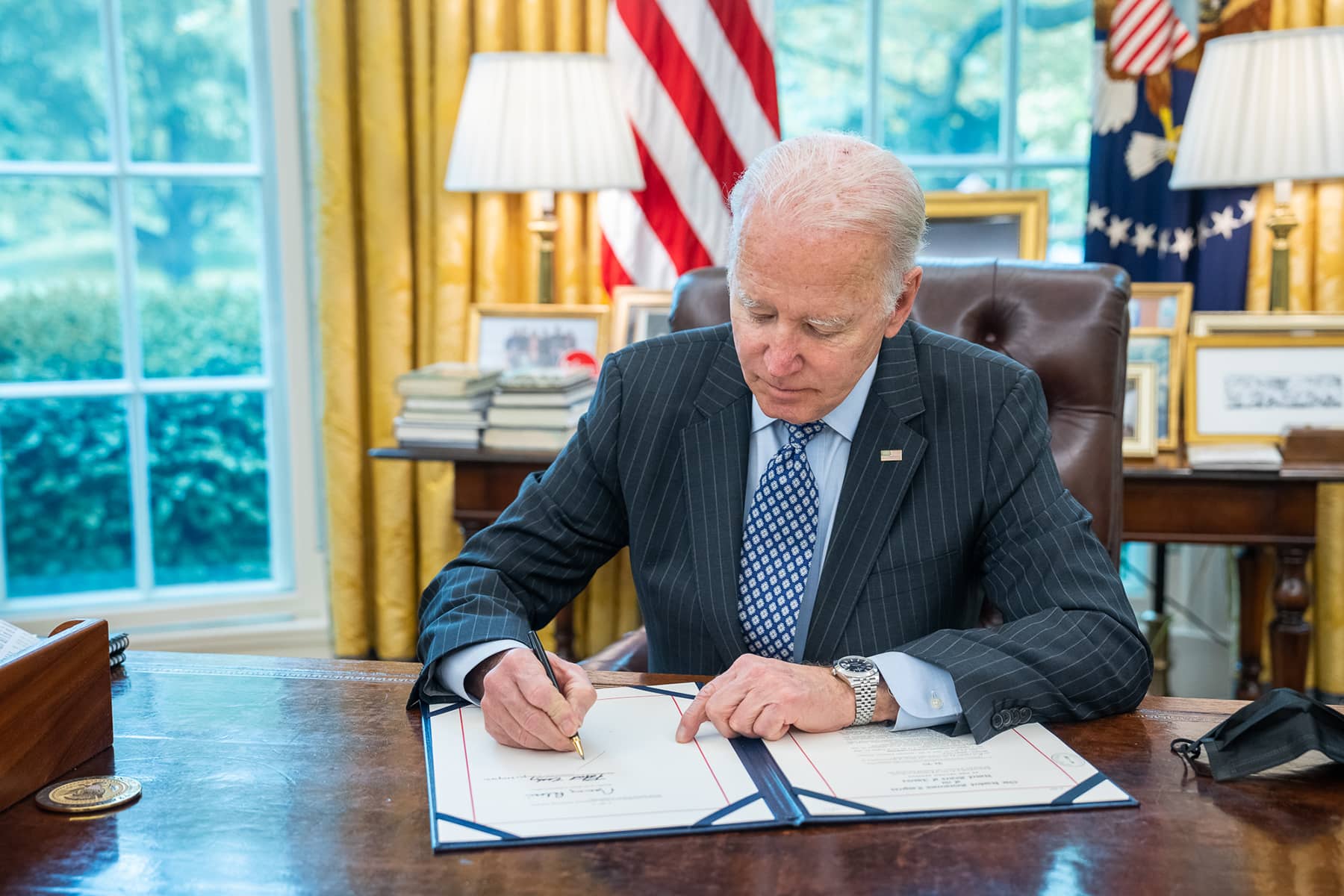
Congress on June 24 cleared the most comprehensive federal gun safety legislation in nearly 30 years, a bipartisan package that went to President Joe Biden’s desk for his signature a day later.
In a 65-33 vote, the bill, comprised of eight provisions, passed the U.S. Senate late on June 23. The House on June 24 joined, approving the Senate’s bill 234-193, with 14 Republicans joining all Democrats.
“We did something exceptional in the Senate,” Democratic Senator Chris Murphy of Connecticut, the lead negotiator on the gun control legislation, said on Twitter.
House Speaker Nancy Pelosi said at a press conference ahead of the June 24 vote that while the bill does not have everything that Democrats had hoped for, it was a start for more gun control.
“Let us not judge the legislation for what it does not do, but for what it does,” she said.
Red flag laws
The bill would provide $750 million for states to enact “red flag laws,” which allow the courts to temporarily remove a firearm from an individual who is a threat to themselves or others, among other provisions.
In a statement, Biden said that he was proud of the legislation Congress passed.
“Kids in schools and communities will be safer because of it,” he said.
Senate Republicans who voted for the bill included Roy Blunt of Missouri, Richard Burr and Thom Tillis of North Carolina, Bill Cassidy of Louisiana, Susan Collins of Maine, Joni Ernst of Iowa, Lisa Murkowski of Alaska, Rob Portman of Ohio and Patrick Toomey of Pennsylvania.
Mass shootings
A group of 20 bipartisan senators worked to pass legislation on gun control after the recent mass shootings in Buffalo, New York and Uvalde, Texas.
In Buffalo, a White Supremacist targeted a Black neighborhood and killed 10 Black people in a grocery store. And in Uvalde, 19 children and two teachers were murdered, making it the second-deadliest mass shooting since the Sandy Hook Elementary School massacre in 2012.
“Families in Uvalde and Buffalo — and too many tragic shootings before — have demanded action,” Biden said late Thursday. “And tonight, we acted.”
There have been 281 mass shootings this year, according to the Gun Violence Archive, an independent data collection organization that defines a mass shooting as one in which four or more people have been shot or killed.
The congressional bill, known as the Bipartisan Safer Communities Act, would also provide $11 billion in mental health services for schools and families and curb the illegal trafficking of guns known as straw purchases, in which a buyer can acquire a gun for someone else.
Representative Lucy McBath, Georgia Democrat and gun safety advocate, said that the passage of this bill is just the beginning of Congress’ fight for gun safety. Her son, Jordan, was murdered, and McBath has championed red flag laws.
“This gives us hope,” she said of the bill. “This bill does not answer all of our prayers, but this is hope.”
The last time Congress passed major gun legislation was in 1994, when then-President Bill Clinton signed a ban on assault weapons that spanned 10 years. The ban was not renewed when it expired.
Court decision
The passage of the bill also follows the Supreme Court decision that went in the opposite direction, striking down a concealed carry law in New York and expanding Second Amendment rights.
A major sticking point as lawmakers debated the Senate bill was the closing of the “boyfriend” loophole. The legislation includes a five-year period during which those who are convicted of committing an assault against a romantic partner must wait to obtain a firearm. If no other offenses are committed, then that person will be removed from the National Instant Criminal Background Check System.
Senator Martin Heinrich, a New Mexico Democrat, said on the Senate floor that his sons have to routinely practice school shooter drills.
“That type of experience has become all too common in our country,” he said. “It’s appalling and it’s unacceptable.”
Heinrich, who added that he is a gun owner himself, said that commonsense gun laws will help curb gun violence not only in his own state, but also across the country.
The bill also requires those under 21 who want to purchase a firearm to undergo a background check that takes into account a review of juvenile and mental health records.
Senator Debbie Stabenow, a Michigan Democrat, and part of the bipartisan group, said that the provision on red flag laws will give family members a tool to temporary remove a weapon from someone who could harm themselves. Stabenow said that the red flag laws and mental health provisions will help save lives, as a large portion of firearm deaths are due to suicide.
“It really is transformative,” Stabenow said of the funding for mental health services.
Senate Minority Leader Mitch McConnell, a Kentucky Republican who backed the measure, said on the Senate floor that he felt the bill “makes our country safer without making it any less free.”
Blunt, a member of the bipartisan group, said that the one thing these “mass shootings have in common is a perpetrator that has mental health problems.”
He reiterated that those with mental health problems are not dangerous.
“Mental health is a health issue, and we should treat it as a health issue,” he said.
Blunt said the mental health funding that the bill provides will help those who are in crisis and could potentially harm themselves or others.
Senator John Hickenlooper said on the Senate floor that mass shootings have become a uniquely American experience, growing since the Columbine school shooting in his state in 1999.
He said a movie theater shooting in 2012 in Aurora, Colorado, where he visited the scene as governor, “still haunts me.”
The nine Senate Democrats and one independent in the bipartisan group that came up with the bill are Murphy, Kyrsten Sinema of Arizona, Richard Blumenthal of Connecticut, Cory Booker of New Jersey, Chris Coons of Delaware, Martin Heinrich of New Mexico, Mark Kelly of Arizona, Angus King of Maine, Joe Manchin of West Virginia, and Debbie Stabenow of Michigan.
The 10 Senate Republicans in the bipartisan group were John Cornyn of Texas, Tillis, Blunt, Burr, Cassidy, Collins, Lindsey Graham of South Carolina, Portman, Mitt Romney of Utah, and Toomey.
Ariana Figueroa
Аdаm Schυltz
Originally published on the Wisconsin Examiner as Congress sends Biden historic gun safety legislation, with GOP support
Donate: Wisconsin Examiner
Help spread Wisconsin news, relentless reporting, unheard voices, and untold stories. Make a difference with a tax-deductible contribution to the Wisconsin Examiner













